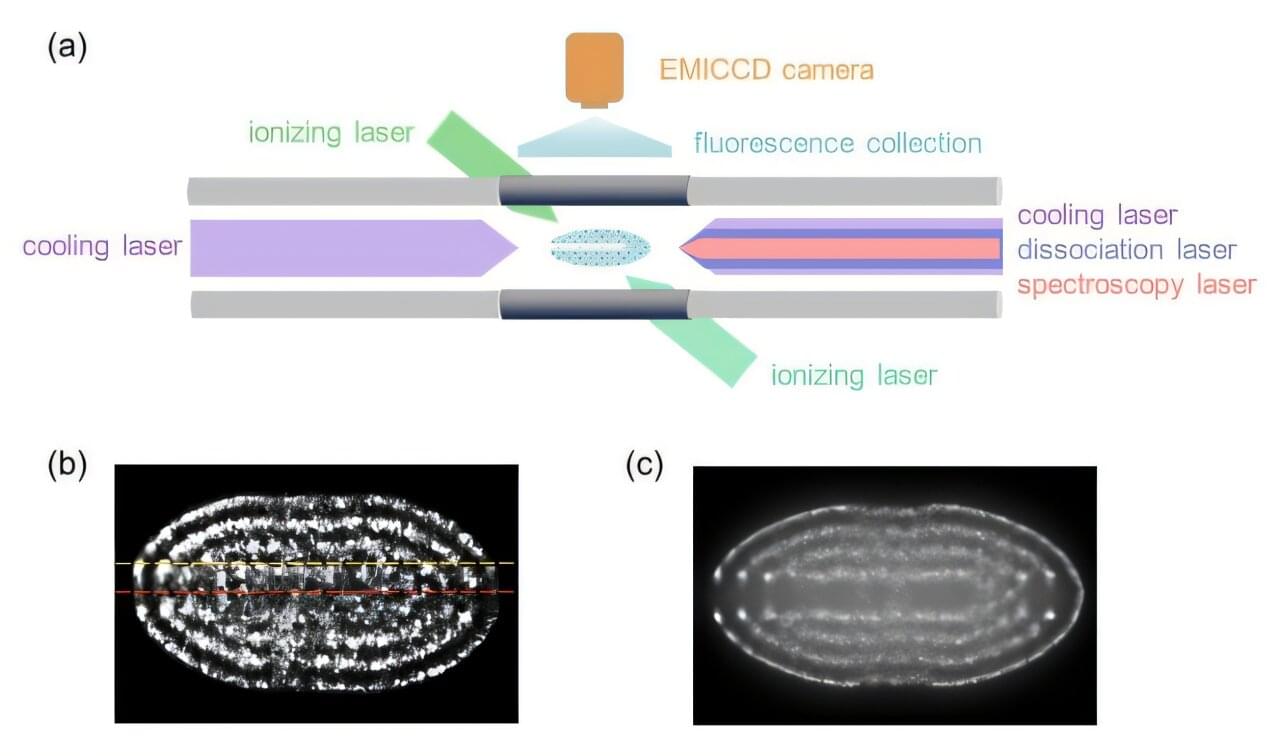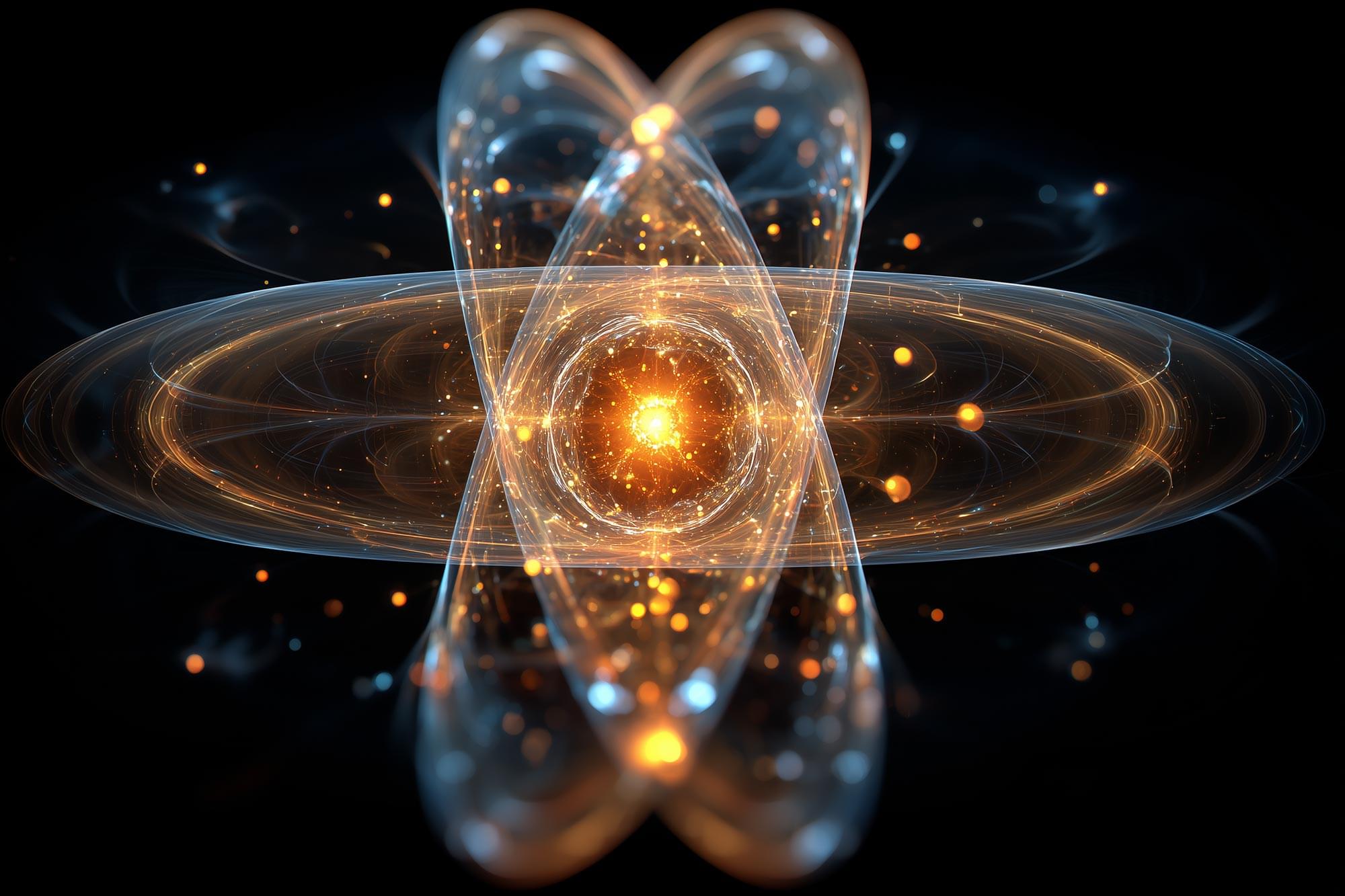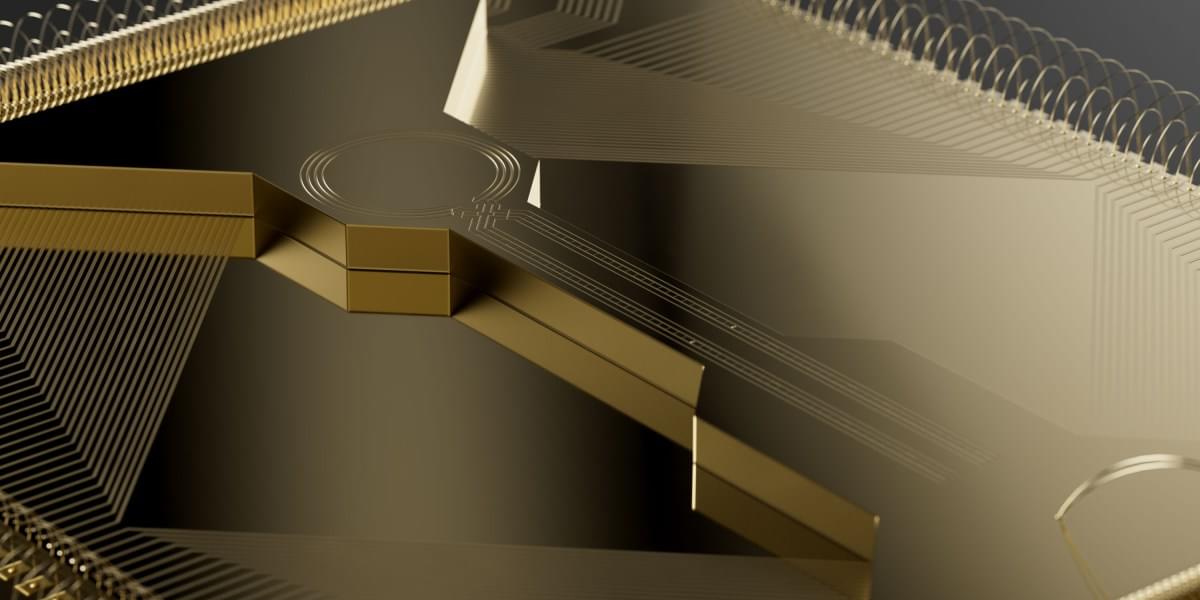A research team from the Innovation Academy for Precision Measurement Science and Technology (APM) of the Chinese Academy of Sciences has made significant progress in precisely measuring the vibrational-rotational spectra of hydrogen molecular ions (HD⁺).
The researchers prepared a Be⁺-HD⁺ two-component ion Coulomb crystal at millikelvin temperatures in a linear ion trap. They developed an innovative quantum state preparation and spatially resolved fluorescence detection techniques and used these to measure the high-resolution vibrational-rotational transition spectra of HD⁺ molecular ions. Their findings were published in Physical Review A.
HD⁺ is the simplest heteronuclear molecular ion, composed of one proton, one deuteron, and one electron. Its vibrational-rotational transition energies can be precisely calculated, making it an ideal system for testing quantum electrodynamics (QED) theory and determining fundamental physical constants, such as the proton-electron mass ratio.







